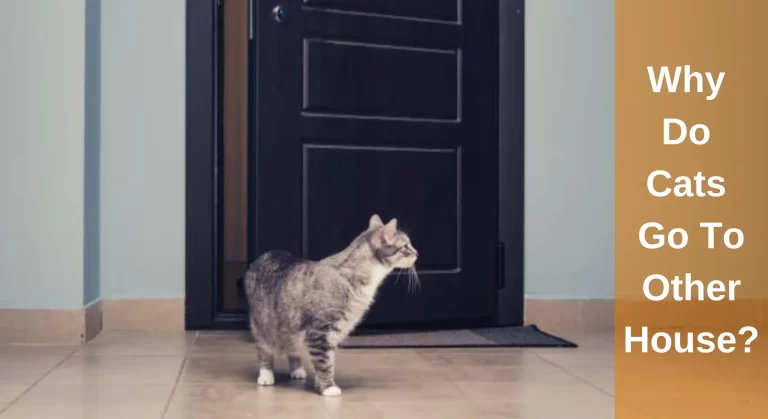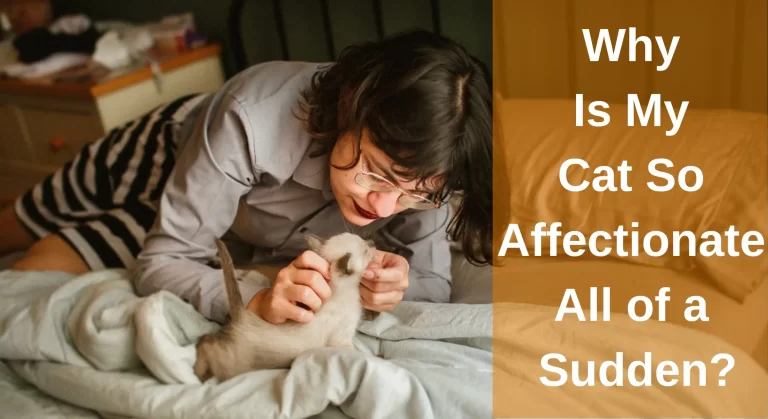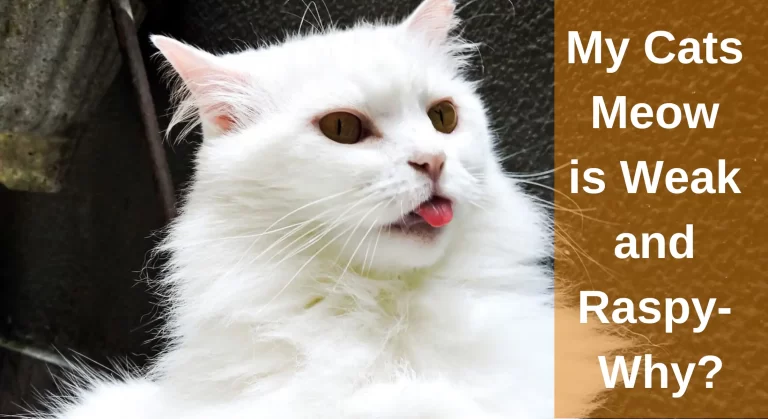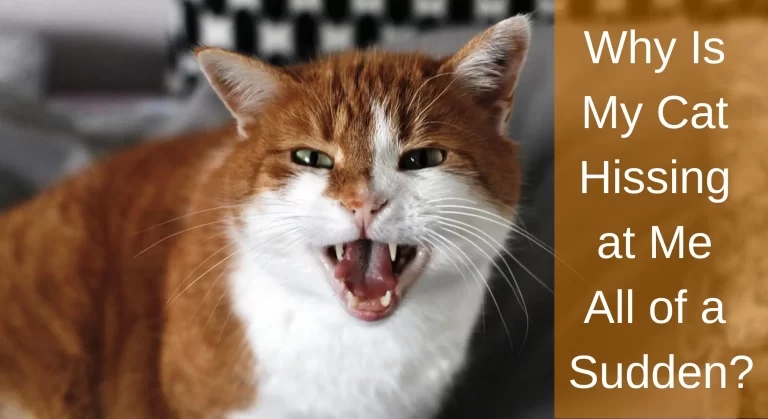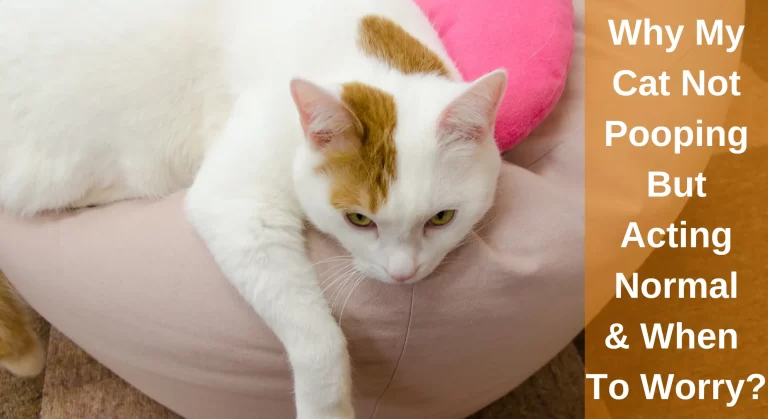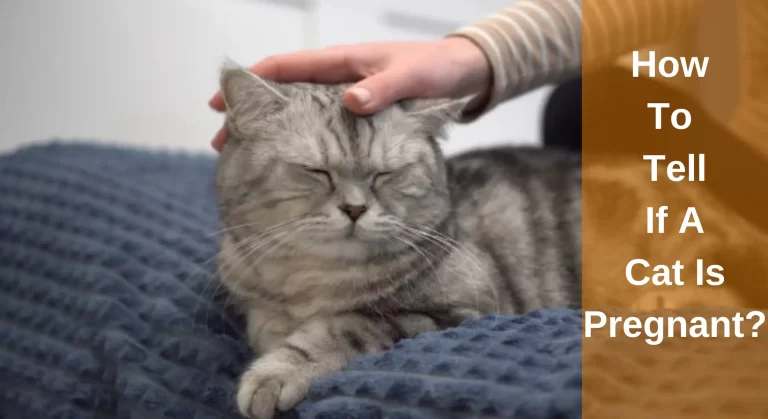Why is My Cat Drooling Excessively Suddenly?[Answered]
As a cat owner, noticing sudden changes in your cat’s behaviour can be concerning, especially if you observe that your feline is drooling excessively, which can be a cause for concern. Although some felines may drool occasionally, excessive drooling may be indicative of an underlying medical condition
Why is My Cat Drooling Excessively Suddenly? Numerous factors may trigger excessive drooling in a feline. It could result from dental issues such as tooth decay or gum disease. Other plausible causes may encompass ingestion of noxious substances, heatstroke, anxiety, or medication side effects. Excessive drooling is not normal,, and it is crucial to promptly seek medical attention.
In this article, we will discuss the possible causes of sudden excessive drooling in cats and what you can do to help your furry friend.
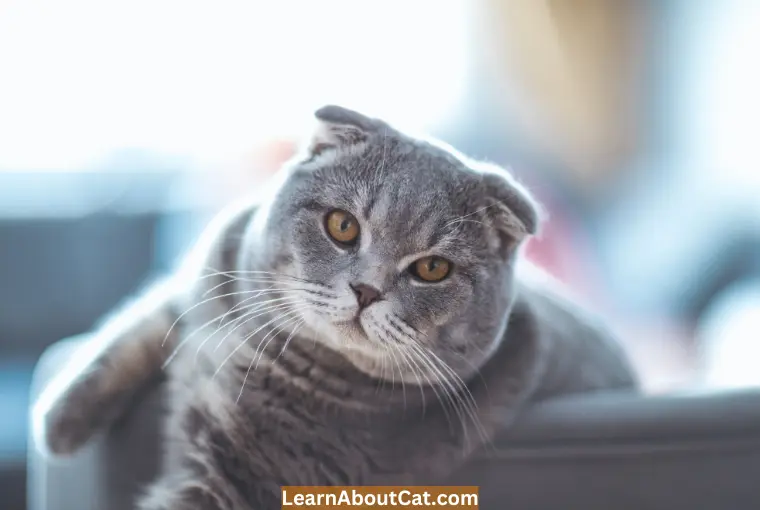
What is Excessive Drooling in Cats?
Drooling is a normal physiological response for cats, especially during the grooming process. However, excessive drooling in cats, also known as hypersalivation or ptyalism, is when your cat produces more saliva than usual, leading to excessive drooling which is not normal and may be a sign of an underlying medical condition.
Why is My Cat Drooling Excessively Suddenly?
A bit of drool is normal when cats are relaxed, getting pets, or purring. When they feel safe and very relaxed, their body’s parasympathetic (rest and digest) system is activated. Along with many other functions, it is also responsible for the production of saliva, so a little drool is expected.
However, it gets alarming when you notice your feline drooling way too much out of the blue. Here are some reasons why cats drool excessively:
1. Dental Issues
If your feline is drooling, making absurd mouth movements, and avoiding food, it could have a dental problem. Other signs that you may notice include the following:
- Bad breath
- Preferring wet canned food over dry kibble
- Weight loss
Cats commonly suffer from dental diseases, some of which include gingivitis, periodontitis, and tooth resorption. In fact, it is reported that around 85% of elderly cats have some sort of dental issue.
Gingivitis is a common feline dental ailment, which is characterized by inflammation and bleeding of the gums. If left unattended, this condition may progress to periodontal disease, causing the cat to excessively drool, feel excruciating pain, and lose its teeth. Consistent dental checkups and proper dental care could prevent and remedy gingivitis in cats.
What’s worse is that oral ailments are progressive, which means, if untreated, they will only get worse over time. This is why it is vital to take a trip to the vet as soon as you notice signs of dental disease.
2. Oral Injury
Injury to the mouth can cause hypersalivation. The pain might cause your feline to keep its mouth open, resulting in drooling. Here are some possible ways your cat can hurt its mouth:
- Getting into a fight with another cat.
- Chewing on electric cables.
- Biting a sharp object.
- Biting the inside of its cheek while eating.
If your cat has an oral injury, it will show signs like a dental disease. However, unlike dental disease, oral injuries tend to heal well on their own.
This is because the mouth is a highly vascular and moist area, so as long as the injury is contained to soft tissue, it should heal nicely. That being said, if you notice it getting worse, take your feline to the vet.
3. Traveling – Motion Sickness
Traveling can be stressful for both humans and animals but for entirely different reasons. Being locked in a cat carrier, the inability to escape, traffic and car sounds, as well as the motions of the car can freak any feline out.
Additionally, just like us, cats can get car sick, leading to nausea. The nauseous feeling causes excessive drooling.
To prevent your cat from stressing out while travelling, there are some ways you can ease it into the process:
- Leave the cat carrier in your house so your cat can get familiar with it.
- Go for short drives around the block with your feline.
- Purchase a pheromone calming collar or spray.
For more tips and tricks to getting your cat comfortable with car rides, check out our article: Cat Panting in Car: Why & What to Do.
4. Heat Stroke
Cats are warm-blooded animals, meaning they can thermoregulate. In general, you will notice your feline enjoys being around warmth, like sitting in the sun, getting under blankets, or sitting in front of the heater.
While cats have no problems warming themselves up during the cold, they struggle to cool down when they are too hot and may start drooling and panting in an attempt to lower their body temperatures. They may also start grooming themselves, so saliva evaporates and cools them down, as cats do not sweat as we do.
Therefore, it is easy for felines to develop heatstroke. This is when their core body temperature is unable to come down. If left untreated, it can cause sudden collapse, coma, or even death.
If you think your cat has a heat stroke, you need to take it to the vet in an emergency. On your way there, make sure it is in a cool spot, rub it gently with a cold towel, and encourage it to drink cold water.
Find Out: What Temperature Do Cats Like?
5. Anxiety and Stress
It is common for felines to produce thick and ropy saliva in response to stress. This is because different glands are over-activated during the fight-and-flight response, changing the composition of saliva. However, the drooling is short-lived and subsides as soon as your cat calms down. If your cat is stressed, you might notice other odd signs, such as:
- Aggressive behaviour
- Hissing
- Hiding
- Loss of appetite
- Sleep disturbances
- Overgrooming
- Scratching furniture
Cats are highly sensitive beings and may exhibit signs of anxiety and agitation due to even the slightest environmental changes, introduction of new pets, or exposure to loud noises.
It is best to identify what is causing your pet to spin out of control, and then remove the triggering factor. In the future, be sure to gradually introduce any changes to your cat’s routine.
6. Neurological problems
Excessive drooling in cats could also be caused by neurological conditions such as seizures or brain tumors, which are potentially life-threatening and necessitate immediate medical intervention.
In case your feline friend undergoes abrupt behavioral changes, seizures, or loses consciousness, seek veterinary care promptly.
7. Poison
Hypersalivation is a tell-tale sign that your feline has been poisoned. This happens when your pet eats something it shouldn’t have, like home cleaning products, human medication, houseplants, chocolates, onions, garlic, essential oils, or flea medication for dogs.
If your cat has eaten something that is poisonous to it, the effects will come swiftly. Some of these include:
If you suspect your cat has been poisoned, you need to rush your feline to the vet in an emergency, as its condition will only deteriorate as the substance spreads through its system. Most cats make a full recovery if they are timely taken to the vet.
8. Foreign objects
Being naturally curious creatures, cats may accidentally swallow foreign objects or get them stuck in their mouths, causing excessive drooling.
Such objects could include bones, toys, or strings. If you suspect that your cat has a foreign object lodged in its mouth, make sure to seek veterinary assistance immediately.
9. Medication Side Effects
If you recently started your cat on a new medicine, chances are drooling is a side effect. Most animal drugs have hypersalivation as a side effect.
Your cat may also be salivating to get rid of the nasty after-taste of the medicine. You can try mixing it with wet canned food to reduce its taste, which should help the drooling.
In any case, if the excessive drooling is because of the drug, it should subside as soon as the course is complete and is nothing to worry about.
My Cat is Drooling Excessively Suddenly – When Should I See a Vet?
Seeing your vet about excessive drooling largely depends on other symptoms that your cat is exhibiting, as well as reasons for drooling. If your cat is drooling because of stress, travelling, or medication, there is nothing to worry about, as this is temporary.
However, if the cause of drooling is unknown and accompanied by blood in drool, loss of appetite, vomiting, bad breath, difficulty breathing, or even seizures, you should see your vet.
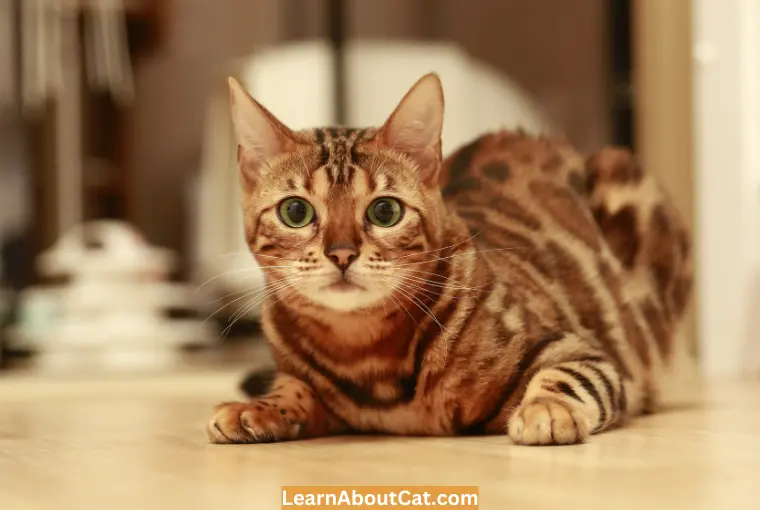
Symptoms of Excessive Drooling in Cats
Here are some common symptoms of excessive drooling in cats:
- Wet fur around the mouth and neck
- Saliva stains on furniture or bedding
- Pawing at the mouth or face
- Difficulty swallowing
- Loss of appetite
- Lethargy
- Vomiting
If you observe excessive drooling in your cat, coupled with any of the accompanying symptoms, it is imperative to get urgent medical attention. Delaying treatment could exacerbate the condition, leading to more severe complications.
Frequently Asked Questions
Is drooling a sign of rabies in cats?
Drooling can be a symptom of rabies in cats, but it is not always present. Other symptoms of rabies may include aggression, disorientation, and difficulty walking. If you suspect that your cat has been exposed to rabies, it is important to seek veterinary care immediately.
Why is my cat drooling and not eating?
There can be several reasons why a cat is drooling and not eating. It could be due to dental issues, such as tooth decay or gum disease, which can make eating painful. Other possible causes include oral ulcers, a foreign object stuck in the mouth, or nausea. It is important to seek veterinary care to identify the underlying cause and provide appropriate treatment.
Is it normal for cats to drool while sleeping?
It is not uncommon for cats to drool while sleeping, especially if they are in a deep state of relaxation. This is usually nothing to be concerned about and is considered normal behaviour.
However, if your cat suddenly starts drooling excessively while sleeping or at other times, it could indicate an underlying medical issue that requires attention.
Is it normal for a cat to drool while purring?
Some cats may drool while purring, which is considered normal behaviour. This is often a sign of contentment and relaxation. However, if the drooling is excessive or accompanied by other symptoms, it is important to seek veterinary care to rule out any underlying medical conditions.
How can I prevent sudden excessive drooling in cats?
While it may not always be possible to prevent drooling in cats, there are steps that can be taken to reduce the risk. Preventing sudden excessive drooling in cats involves maintaining good dental hygiene, keeping poisonous substances out of reach, and providing proper ventilation and cooling during hot weather.
Can ageing cause excessive drooling in cats?
Yes, aging could cause excessive drooling in cats, as older cats could develop dental issues, reduced immunity, or other age-related health problems. Regular veterinary checkups and providing proper care and nutrition could help minimize age-related health issues and symptoms.
Why does my cat have saliva dripping from his mouth?
Your cat could be salivating for numerous reasons, ranging from deep relaxation to stress and nausea to dental diseases and poisoning. If your cat is constantly drooling and has accompanying symptoms, get it checked by the vet.
Is excessive drooling always a sign of a serious medical condition?
No, not always. Sometimes, excessive drooling can be a harmless behavior, such as drooling in response to a pleasurable stimulus like petting or being fed. However, if excessive drooling is accompanied by other symptoms or lasts for an extended period, it is important to seek medical attention to rule out any underlying medical conditions.
Closing Words!
In some cases, like stress, travelling, or medication intake, your cat’s drooling is short-lived and nothing to worry about. However, if it is excessive, non-stop, and accompanied by alarming symptoms, it can range from dental disease to your cat being poisoned or suffering a heat stroke.
If your cat is drooling excessively, and you notice any of the accompanying symptoms, you need to rush to the vet.
Who is Isabella?
My name is Isabella, and I am a dedicated and knowledgeable cat enthusiast. With years of experience caring for cats and a deep love for felines, I made a mission to help other cat lovers navigate the challenges of cat ownership.

